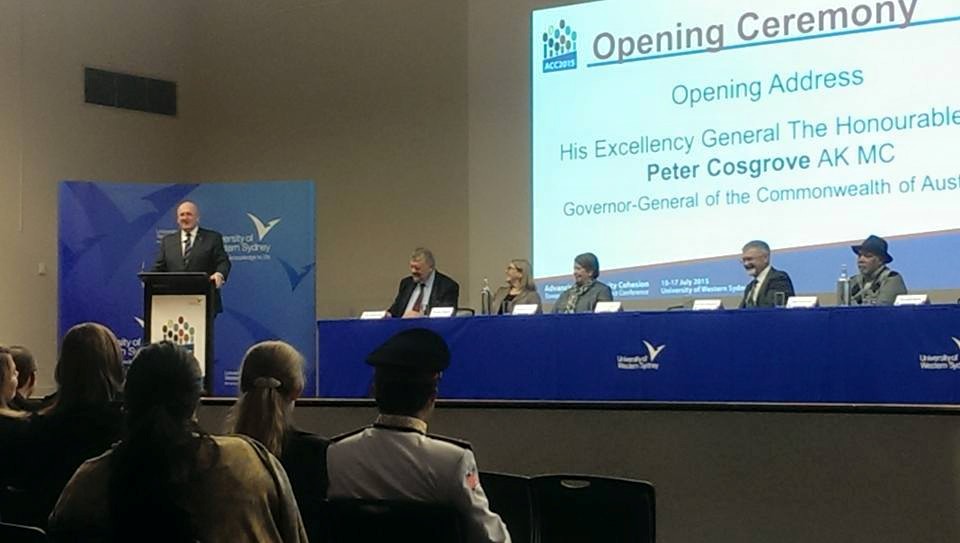 On July 16 and 17th, OHPI participated in the Advancing Community Cohesion conference at the University of Western Sydney. The conference was opened by the Governor-General Sir Peter Cosgrove. Over the next two days, here’s short description of the speakers and what they spoke about:
On July 16 and 17th, OHPI participated in the Advancing Community Cohesion conference at the University of Western Sydney. The conference was opened by the Governor-General Sir Peter Cosgrove. Over the next two days, here’s short description of the speakers and what they spoke about:
Associate Professor Anne Aly spoke on violence extremism. She dissected, and rejected as overly simplistic and untimely harmful, the idea that violent extremism is about “them” rejecting “our” values. She said this leads to a conclusion that ultimately nothing can be done and this is wrong. She also mentioned how religious pluralism is embedded in Section 116 of the Australian Constitution and suggested this should be something we promote. She spoke about addressing the underlying causes of violent extremism: challenging violent extremism messaging, reinforcing moral self sanctions, and developing awareness (eg critical thinking skills).
Jeremy Jones talked about religious groups working together to cause positive change for Australia. He also mentioned people of different faiths coming together to support Indigenous Australians.
Senator Kim Carr, Shadow Minister for Higher Education, Research, Innovation and Industry spoke about historic divisions in Australia between Catholics and Protestants, and how that’s unthinkable today, but the same messages of excluding people is now directed against Muslims, Asians and refugees. He also spoke about the ending of the White Australia policy and today’s problem of people feeding on myths to undermine multiculturalism.
Michael Ebeid, CEO & Managing Director of SBS addressed the Advancing Community Cohesion conference on the role of the media in advertising community diversity. He praised NITV and how Indigenous children feel when they see people who look like them on TV. He also discussed the role of SBS in uniting parts of the community, particularly new immigrants.
Acting Commander Richard Stanford APM of the Australian Federal Police discussed how the rise of home grown online radicalisation is the AFP’s biggest fear. They are concerned that the people being targeted by extremists are getting younger; alienation in the Muslim Community is a concern; competition between community group for funding is a challenge; and the rise of the far right is a threat to multiculturalism.
Prof Kevin Dunn discussed whether anti-Muslim hate leads to people becoming disaffected and more likely to be radicalised. He expressed the concern that the qualitative work has sampled people who are already disaffected, but then generalised that to all Muslims. The research does show a rise in anti-Muslim sentiment and some problems associated with that, such as opposition to the building of Mosques. 60% of Sydney Muslim have experienced racism at work, 3 times the national average. Research shows Sydney Muslims are very concerned about the media and it’s impact on the views other Australians have of Muslims.
Tim Wilson from the Australian Human Rights Commission said that civil rights, which gives equality before the law, can be limited but in doing so the limitations need to be necessary and proportionate. He said we also need to consider whether the limitations are permanent or temporary, also whether the laws reducing rights are focussed and limited enough. He’s gone on to express opposition to laws that prohibit racial vilification by saying it isn’t fair to other groups, and he mentioned the LGBTI community as an example, don’t have the same protection.
